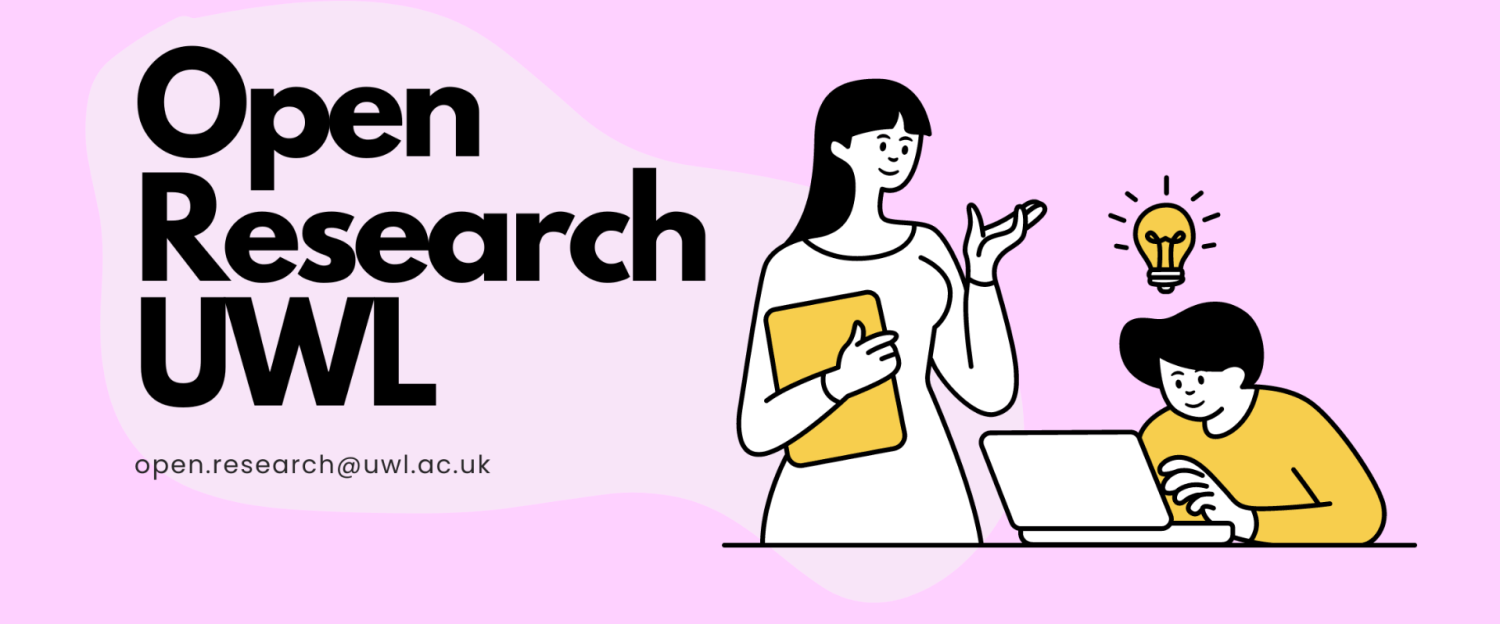Research England have modified their proposals in two key areas, accourding to their latest communication
Longform now no longer to be included. After suggesting in their consultation document that Open Access rules would be applied to books and book chapters for REF 2029, they have bowed to pressure and agreed ‘the broad set of challenges currently facing the sector’ make this impractical for now.
The 2021 regulations for articles and conference papers (that have found a home on a ‘Proceedings’ with an ISSN) will continue to apply till Jan 2026 now, not 2025. Promised tightening of allowances in the draft 2029 regulations re: embargoes applied by journal publishers, won’t have to be dealt with till then.
Blog Shoutout: Data Colada

This week, we want to shout out another great blog that looks at research integrity. Data Colada has been around for over a decade and has highlighted major issues around reproducibility in the social sciences. The blog’s creators are behavioral scientists so their takes are particularly interesting! They’re credited with coining the term ‘p-hacking’ to describe misuse of data analysis, to give you an idea of their impact.
They’ve made a number of notable findings over the past 11 years and continue to call out bad practice through their regular blog posts and advocacy. Check them out and add them to your subscriptions!
Reproducibility Crisis and Open Research

In scholarship, there’s been increasing conversation over the past decade about a ‘Reproducibility crisis.’ Empirical findings in notable research papers have not been able to be replicated in follow-up studies. In one telling 2008 study from the Reproducibility Project, only 39 out of 100 studies published in prominent psychology journals were successfully replicated.
Way back in 2005, John Ioannidis published a prescient article titled ‘Why Most Published Research Findings Are False.’ He summarised his findings as follows:
Simulations show that for most study designs and settings, it is more likely for a research claim to be false than true. Moreover, for many current scientific fields, claimed research findings may often be simply accurate measures of the prevailing bias.
Sadly, the situation seems even worse nearly two decades later. Just today, Retraction Watch have reported on a record number of over 200 retractions from one researcher, relaying that: “Joachim Boldt, has now been credited with 210 retractions – making him the first author (to our knowledge) with more than 200 retractions to his name.” His papers have been retracted on the basis of “suspicious data.”
What can be done? Naturally on this blog, we advocate adopting Open Research Practices. As we concluded in our previous post about Ethics in Research, ‘Essentially, good practice in Open Research amounts to communicating findings accurately and honestly and properly acknowledging the works of others.’ Open Research is a necessary counterbalance to the reproducibility crisis. On our UWL webpages, we’ve listed 7 Open Research Steps that should help keep your works open, transparent and reproducible, thereby enhancing academic credibility. They’re condensed slightly below but check out the webpage linked above for further links and resources:
- ‘Pre-register’ your finalised research design, either by uploading it to the UWL repository or elsewhere. Consider publishing your finalised design as a ‘registered report’ in a relevant journal. Journals which will accept Registered Reports will agree to publish a final paper, with ‘significant’ outcomes or not, if you follow the plan.
- Complete a Data Management Plan which includes how you are going to make your data sets available through a data repository, confidentiality permitting.
- Make sure your datasets are structured and labelled so that they are ‘Findable, Accessible, Interoperable and Reuseable’.
- Structure your papers so that titles and abstracts are illuminating, and keywords are prominent thereby making your paper easily discoverable through databases.
- Consider uploading a pre-print (a paper yet to be peer-reviewed) to a pre-print server and asking for feedback.
- Make sure your published papers are open access either through the UWL repository or through the expanding opportunities to make your paper open ‘in situ’ in the journal’s own website.
- Engage with Open Peer Review and teach Open Research practices if you are a teacher or research supervisor.
UKSG annual Conference 8th-10th April 2024
This year, UKSG’s annual conference in Glasgow was heavily focused around issues to do with open research. There were three key open research-based themes that produced some interesting discussion points during the various talks and workshop sessions over the three day conference; Research Integrity, Transitional Agreements, and Predatory Publishing. For this post, I’ve collated 3 essential insights gathered under each of the headings to keep it short and to-the-point!

Research Integrity
- Now more than ever, there’s a need to develop and implement relevant procedures and policies, and to start developing and delivering training around issues related to potential breaches of integrity.
- This is related to the incredible growth in retractions over the past two decades; from 40 retractions recorded in the year 2000 to over 13,000 in 2023. The total number of retractions has been surpassed each year since they began to be recorded.
- It’s crucial for academics to have good quality data sources as a counterbalance to pressures that break research integrity; the pressures of the evaluation system; challenges in the peer review landscape and the aims of nefarious external actors.
Transformative agreements
- Overall good news on the Transformative agreement front from JISC! The 2022 Jisc Transformtive agreements (excluding Springer Nature) have delivered actual cost savings of £16.7m to subscribing institutions in the first year of the agreement when compared to expenditure in the preceding year.
- As an early adopter of transitional agreements, the UK appears to be transitioning to open access more effectively than the global average. In 2022, the number of UK open access articles was 4% higher than the global average (UK: 50%; global 46%).
- There has been a steady decline in the number of UK Green-only articles – around 4% over each of the last four years. This is a more exaggerated version of the global trend.
Predatory Publishers
- There was an interesting talk from the head of the quality team at the Directory of Open Access Journals, Dr. Cenyu Shen, who works to prevent DOAJ from having questionable journals indexed. It’s no mean feat, they have over 2000 journals on there. Last year, they ran 409 investigations which took around 800-man hours, surpassing any of the past years records.
- Presentations and discussions advocated for more nuance in thinking about issues to do with predatory publishers. It’s better to think of publishers as being on a kind of ‘predation spectrum’ as opposed to a binary ‘predatory-or-not’ understanding. to put this into context, issues can range from a small slip in editorial processing standards to purposely falsifying impact factor scores.
- One question persists: Should citations be such a coin of the realm? There was no doubt that the mounting pressures of ‘publish or perish’ culture is largely to blame for the rise of (increasingly sophisticated) predatory publishers.
Fraudulent Publisher and Journal Sites
Recently, we posted about the well-known issue of predatory publishers in academia. Increasingly, journals and publishers have to also contend with fraudulent/hijacked/copied websites. This is a breed of scam website that’s fast becoming endemic in the scholarly communications world. Bad actors set up a fake website using the branding and visuals of a legitimate publication and charge an article processing fee in exchange for speedy publication under false pretenses.
Last week, Liverpool University Press posted an informative post that serves as a cautionary tale.
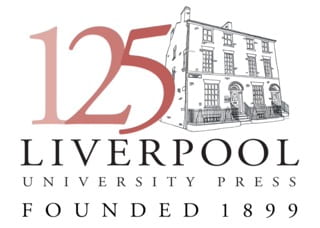
Red flags first came about late last year, with authors raising concerns about incorrect Scopus listings and asking about APC charges for this Open Access publication, having come across a fraudulent version of one of their journal’s homepages.
This was a clone of the journal’s own homepage – containing the journal branding, requesting (and accepting) submissions, and displaying content. The content seemed to be nonsense, and had not been taken from our site, but the site was very convincing. Our concern was not that genuine IDPR content was being scraped, but that someone posing as the editor of the journal was accepting papers and liaising with authors.
The blog post from LUP goes on to detail how they have tried to tackle the fraudulent site and have it taken down (spoiler: with great difficulty). The TLDR takeaways are:
- Think.Check.Submit. continues to be an invaluable resource in the world of scholarly communications, if in doubt run a title search on the site.
- Our faves at Retraction Watch also run a Hi-jacked Journal Checker.
- As ever, contact the Open Research team if you’re unsure about anything– we’re always happy to help! Open.research@UWL.ac.uk
Be wary out there!
Retraction Watch…best blog ever?

Last week, Eilish headed to the UKSG annual conference in Glasgow (more on that later!). The keynote speaker for day one happened to be a UWL open research team favourite; Ivan Oransky, one of the creators of the Retraction Watch blog. Oransky is a distinguished journalist who has written on science and medicine for consumer and trade press for many years. When explaining his precis for starting the blog with his colleague, Adam Marcus, he cited a 2008 paper in the Journal of Medical Ethics:
Although retractions are on average occurring sooner after publication than in the past, citation analysis shows that they are not being recognised by subsequent users of the work. Findings suggest that editors and institutional officials are taking more responsibility for correcting the scientific record but that reasons published in the retraction notice are not always reliable. More aggressive means of notification to the scientific community appear to be necessary.
Retraction watch posts both daily and weekly newsletters and they’re well worth having in your inbox to keep tabs on the latest. You can subscribe and check out the website here.
Happy reading!
The UWL Repository
Last week, the Open Research team held their first of a new series of PGR sessions on Open Research Skills. Among more general Open Access talk, the first installment looked using the institutional repository. It was a really enjoyable session and there was some great discussion and troubleshooting going on. If you weren’t able to attend however, here’s a quick post to give a bit of an overview to searching and depositing.
What is the Repository?
UWL Repository was launched in June 2012 as a digital archive showcasing the research, scholarly and enterprise output of University of West London staff and research students. All staff members and doctoral students can deposit material, subject to editorial process and anyone can search and access the materials that are uploaded onto the repository.
Searching the Repository

As you can see from the screenshot above, there are multiple options for searching. The homepage has a handy quick search bar and the webpage banner also has a site search for easy and continual access. This is best for if you have a particular repository item in mind and want to search via the author’s name or the title of the work.

The tabs on the right can allow for a more exploratory search, clicking browse items will allow you to narrow a search down by year, subject area, school, authors, or type of item.
Depositing Works onto the Repository
For depositing works onto the repository, you need to login with your regular network login details to access the repository. After you have logged in, you will be taken to your ‘Manage Deposits’ user area, which will display any items you have already deposited, and will allow you to add new material. Click on ‘New Item’ to create a new repository record.

Depositing is simple. You will be asked to provide bibliographic details about the item being deposited, provide the full-text of the item where permitted, and agree to the deposit license. After depositing, your item record will go live immediately and the Open Research Librarian will check for any errors or add any extra detail that may be missing. We have a useful video guide that provides more detailed overview of the process that you can view here.
What can I deposit?
All kinds of research, scholarly and enterprise outputs can be uploaded to the repository (both published and unpublished) provided you have permission. Items submitted for publication and still under review should not be deposited – please wait until the item has been accepted for publication. The version that we require most of the time is often referred to as your author’s accepted manuscript (AAM). Text-based works (including articles, conference proceedings and book chapters) as well as visual works (images, videos), and other materials (e.g. sound recordings, compositions, slideshows) can be deposited. You can also deposit pre-prints of your works and we recently added a facility for adding Data Management Plans, which you can read more about here.
If you’d like anymore help or guidance, as ever the Open Research team are ready willing and able to help you out! email us at open.research@uwl.ac.uk.
Also, please do join us at our next PGR session (open to all, not just PGRs!) It’ll be taking place on the ground floor of Rami Ranger at 12pm again and this one will be on:
Wed April 10th: Open Access to research: why, when, where and how? Why do we want research outputs to be open? when should outputs be made Open Access? where can open access materials be found and where and how do you make yours open? Including: Copyright (Creative Commons); Green and Gold open access; preprint servers; Academic.edu/ResearchGate.
See you there!
Predatory Publishers — steer clear!
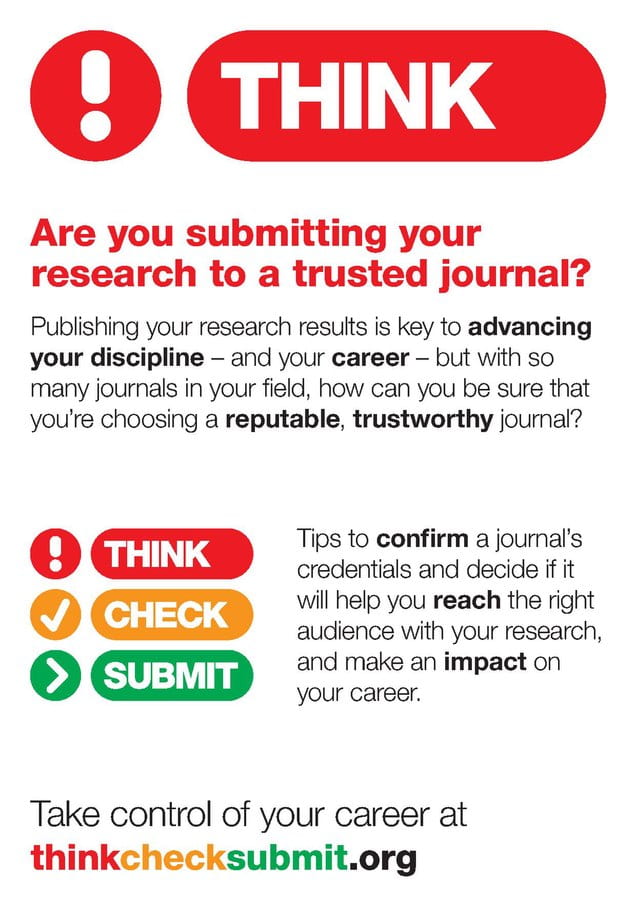
If you thought that academia’s ‘publish or perish’ culture couldn’t get anymore exploitative, you’d be wrong. Sadly, predatory publishers exist to make money off of academics trying to disseminate their works without providing any kind of quality checks or editorial services. The publication fee is often exorbitant, despite a total lack of input on the publisher’s end.
Jeffrey Beal, Librarian at the University of Colorado in the US, coined the term ‘predatory publishers.’ Up until 2017, he also maintained an eponymous list of predatory journals until his institution was sued by Frontiers Media. It was taken offline as a result, but you can still refer to Beal’s List here.
Beal was unequivocal in his criticism of how predatory publishing has harmed the Open Access movement, writing in 2012 that:
When e-mail first became available, it was a great innovation that made communication fast and cheap. Then came spam — and suddenly, the innovation wasn’t so great. It meant having to filter out irrelevant, deceptive and sometimes offensive messages. It still does. The same corruption of a great idea is now occurring with scholarly open-access publishing (Nature).
The email analogy is a good one, especially as this is primarily how predatory publishers target academics. Watch out for emails from publishers that are overly effusive and promise speedy publication!
Publishing in predatory journals could have several negative consequences for authors and their research:
- Works publisher in low-quality predatory journals can be harder to find and cite. Your hard work and important findings may be disregarded by the wider scientific community. A lot of citation databases also don’t index low-quality journals, so it may be difficult for others to discover at all.
- Loss of work. Predatory publishers ultimately have no interest in the author’s actual output and so will have no scruples about taking papers offline without warning or never actually publishing works in the first place. Bear in mind also that most legitimate publishers won’t allow you to submit a work that has been published before so you could waste a huge opportunity.
- Diminishing scholarly integrity in the scientific community. Many predatory journals promise that works will be peer reviewed, but of course, this is not the case. As a result, works of low-quality or misinformation are brought into the scientific conversation, distracting from legitimate sources.
To avoid predatory publishers, check for basic spelling and grammar errors in their communications and website as an obvious giveaway. Take a look at their archives to see if there’s consistency in terms of research area. Also look out for clearly outlined Article Processing Charges and review processes. Note how communicable the publisher is, if you can easily get in touch with them and if they keep normal working hours for the country they state they’re based in.
These are some red flags to be mindful of, but you can use ThinkCheckSubmit.org, to check out a step-by-step guide to evaluating journal quality. You can also quickly check if a journal is featured on the Directory of Open Access Journals (DOAJ) or a member of The Committee on Publication Ethics (COPE) by having a look at their respective websites.
Lastly, if you’re ever in doubt, just get in touch with your friendly UWL Open Research team! As ever, you can email us at open.research@uwl.ac.uk. We’d be more than happy to help!
EDI in Open Access
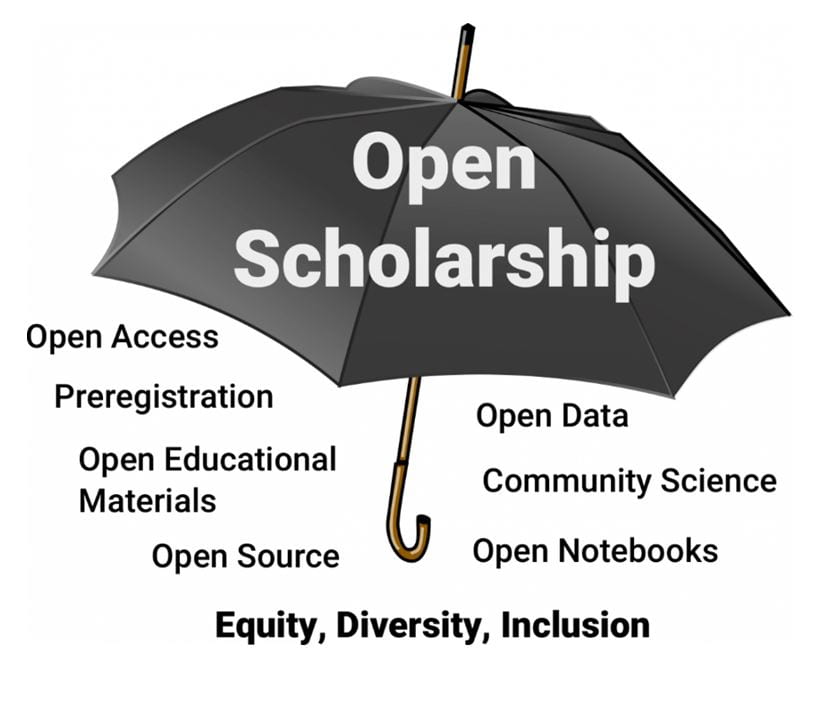
EDI in Open Research
We want to cultivate an excellent research culture at UWL. Open Research is central to our vision, but beyond that, we want to ensure that everyone in our research community can produce work in an inclusive, supportive and equitable environment.
What is EDI?
EDI (equality, diversity & inclusion) interventions seek to address systematic underrepresentation. The development organisation Diversity for Impact provides some excellent summaries of the terms discussed which you can access here.
In a research context, this could look like unequal representation in leadership, grant allocations or citations. By promoting inclusion, we can help to reduce the bias and discrimination that individuals or groups might face in academia when trying to make their research open and accessible to all. UKRI (UK Research and Innovation) published an extensive report on EDI in the context of research and innovation. It provides a summary of the major issues and can be accessed here.
Like Open Research practices, EDI helps us to build a more diverse and supportive community that utilises knowledge from a range of backgrounds and experiences. This helps our knowledge output at UWL to be better representative of actual society, break down social barriers, and better address global challenges.
EDI broadly applies to those who identify as having any of the nine protected characteristics. Under the Equality Act 2010, the nine protected characteristics are: age, disability, gender reassignment, marriage and civil partnership, pregnancy and maternity, race, religion and belief, sex and sexual orientation. However, this list of characteristics is not definitive. For a comprehensive definition of EDI terms, the government of Canada has a well maintained guide put together by a dedicated, interdepartmental committee which you can access here.
What can be done in Open Research to promote EDI?
There’s much work to be done by institutions and research organisations to develop specific strategies and priority areas that address clear equity gaps. UWL produces annual reports on EDI to transparently and openly communicate policy and proactively share data, evidence, and findings. For more information, you can access UWL’s dedicated webpage on equality, diversity and safeguarding here.
Individuals can adopt open scholarship practices such as publishing data, pre-prints and notebooks online from the outset of their research journey to widen access and participation. It is also important that accessible resources such as open-source software, community science networks and open educational resources are well used, developed and promoted. Lastly, disseminating work as widely as possible through open access journals, repositories and academic social networking sites helps to reduce barriers to access for all.
The best research environment is one that is conducive to supporting mutual growth through inclusion, access and encouragement. Open research practices and EDI are complementary approaches to better addressing the global issues affecting us now and into the future.
Paper Mills
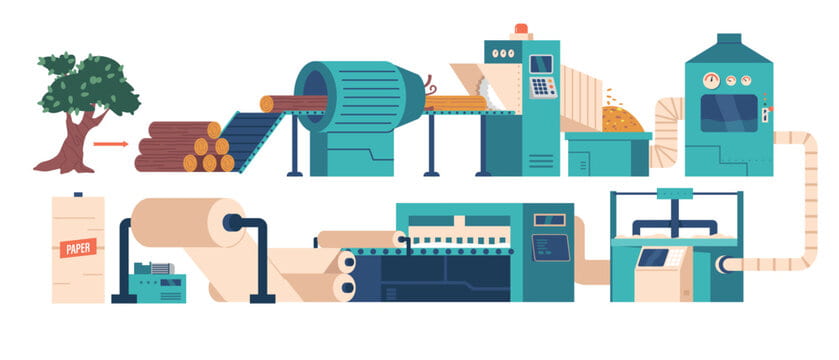
Paper Mills are organisations that produce fraudulent journal articles which appear at first glance to be genuine, and sell ‘authorship’ to those who are looking to inflate their publication records. This is an increasing problem and one which threatens to significantly pollute the research record. Recently, Wiley has had to terminate journal titles and then discontinue their Hindawi imprint because of extensive infiltration by paper mill activity: https://retractionwatch.com/2023/12/06/wiley-to-stop-using-hindawi-name-amid-18-million-revenue-decline/ .
Some mills have gone as far as attempting to bribe editors to allow their fake papers easy publication: https://www.science.org/content/article/paper-mills-bribing-editors-scholarly-journals-science-investigation-finds. The excellent Blog ‘Retraction Watch’ keeps an eye on papers retracted when publishers are alerted to their fraudulent nature. here they discuss how the journal Naunyn-Schmiedeberg’s Archives of Pharmacology, deals with Paper Mills, including 20 ways to spot them: https://retractionwatch.com/2021/02/09/20-ways-to-spot-the-work-of-paper-mills/ .
We will include links about this problem in future Blog entries together with other relevant links in publication ethics and integrity.
